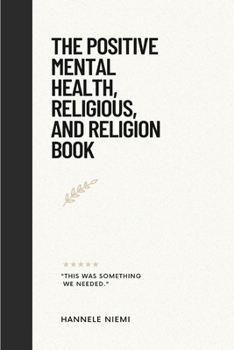The Positive Mental Health, Religious, and Religion Book
It was a fall day in 1930, and the famous American philosopher and historian
William Durant was raking leaves in his yard. A despondent stranger walked up and
shocked Durant by confessing he was planning to commit suicide unless Durant
could give him "one good reason" to live. Flustered, Durant gave a feeble reply: "I
bade him get a job-but he had one; to eat a good meal-but he was not hungry; he
left visibly unmoved by my arguments" (Smith, 2017, p. 19). Durant was so haunted
by the man's question that he wrote over 100 of the brightest minds of his time, asking
each luminary to answer the question "What is the meaning or worth of human
life?" (Durant, 1933, p. 3). He compiled their answers in On the Meaning of Life
(Durant, 1933), published in the wake of World War I and heart of the Great
Depression (Smith, 2017).
Questions about life's meaning have vexed humans across history. For millennia,
philosophers and religious scholars led discourse on the topic, but since psychology's
inception in the late nineteenth century, psychology has contributed to this
discourse as well. Psychology's contribution budded with the work of William
James, a founding figure both in mainstream psychology and the psychology of
religion and spirituality (R/S; i.e., "the empirical or academic study of spiritual
experience or organized religion from a psychological perspective," VandenBos,
2015, p. 860). James (1890/2011) presciently warned psychology from becoming
"a psychology without a soul" (p. 7), experiencing a kind of etymological amnesia.





